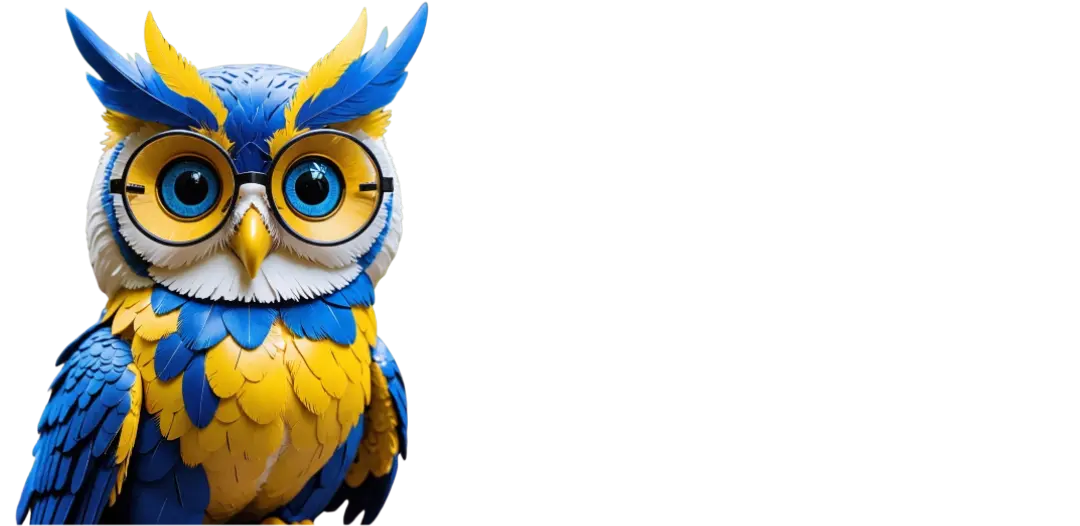As the owner of a successful marketing agency, I am constantly on the lookout for the latest digital marketing top trends and predictions to help our clients stay ahead of the competition. Today, we’ll delve into the future of digital marketing and look at some of the most important top trends and predictions for the coming years.
It’s critical for marketers to stay up to date on the latest trends. This report contains all of the information you need to know about the future of digital marketing.
AI tools and machine learning
To begin with, AI tools and machine learning are poised to transform the digital marketing landscape. These technologies, which can analyze massive amounts of data in real time, can assist marketers in making more informed decisions about everything from ad targeting to content creation.
AI and machine learning are becoming increasingly popular in the world of digital marketing. These tools can predict future actions based on user behavior and patterns, allowing marketers to create more personalized and relevant campaigns. Marketers can use machine learning algorithms to analyze and interpret massive amounts of data, allowing them to identify patterns, trends, and insights that humans would be unable to detect.
Ad targeting is one area where AI tools and machine learning are particularly useful. AI tools can assist marketers in creating targeted campaigns that are more likely to resonate with their target audience by analyzing user behavior, demographics, and interests. As a result, ad spend is more efficient and cost-effective, and conversion rates are higher.
AI tools can also aid in content creation by analyzing audience behavior and preferences and recommending the most effective messaging and tone. This is especially useful for brands looking to reach new audiences or expand into new markets.
Customer service is another area where AI tools and machine learning are having a significant impact. Chatbots and virtual assistants are becoming more sophisticated, allowing brands to provide quick and efficient customer support 24 hours a day, seven days a week. These tools are capable of handling a wide range of inquiries and issues, allowing human customer service representatives to handle more complex requests.
Overall, AI tools and machine learning are poised to transform how brands approach digital marketing. These tools can help marketers make more informed decisions about everything from ad targeting to content creation by analyzing massive amounts of data in real-time, resulting in higher engagement, increased customer satisfaction, and, ultimately, better business results.
Personalization
Another significant trend we’re seeing is a focus on personalization. Brands are turning to personalized messaging and targeted campaigns to stand out from the crowd as consumers become more sophisticated and expect more from their online experiences.
Personalization has become an important factor in digital marketing, as consumers now expect highly personalized experiences from the brands with which they interact online. This trend is being driven by technological advancements such as AI and machine learning, which allow brands to collect and analyze massive amounts of data about their customers.
Brands can gain a better understanding of their customers’ preferences, interests, and behaviors by analyzing this data. This data can then be used to create highly targeted and personalized campaigns that will resonate with customers and drive engagement.
Email marketing is one example of personalized marketing. Brands can tailor their messaging to specific customer groups by segmenting email lists based on factors such as location, purchase history, and interests. This can result in higher open rates, click-through rates, and, eventually, conversion rates.
Personalization can also be used in retargeting campaigns, which show ads to users who have previously expressed interest in a product or service. Brands can create highly targeted ads that are more likely to result in a purchase by analyzing user behavior, such as items viewed or added to their cart.
Personalization is also becoming increasingly important in the user experience. Personalization is now being used by brands to create tailored experiences that are unique to each individual user. Personalized recommendations based on previous purchases or browsing behavior, or personalized product or service offerings based on user preferences, are examples of this.
Finally, personalization has become an important factor in digital marketing because consumers now expect highly tailored and personalized experiences from the brands with which they interact online. Brands can create highly targeted campaigns and personalized experiences that drive engagement, improve customer loyalty, and ultimately increase revenue by leveraging data and technology.
Voice search
Voice search is also poised to become a major player in the world of digital marketing, with an increasing number of people using devices such as Amazon’s Alexa and Google Home to search for information and make purchases. Brands that can optimize their content for voice search will almost certainly see significant increases in visibility and engagement.
Voice search is quickly gaining traction, with an increasing number of people using voice-activated devices to search for information, make purchases, and interact with brands. Advances in technology, such as natural language processing and speech recognition, are driving this trend, making voice search more accurate and accessible than ever before.
As the popularity of voice search grows, brands that can optimize their content for this format are likely to see significant increases in visibility and engagement. The way people phrase their queries is one of the key differences between voice search and traditional search. Voice searches are typically longer and more conversational in nature, reflecting how people speak in everyday situations.
Brands must create content that is both conversational and informative in order to optimize their content for voice search. This entails employing natural language and long-tail keywords that reflect how people speak. It also entails responding to common questions in a clear and concise manner, as voice search queries are more question-based than traditional search queries.
Local search is another important consideration for voice search optimization. Because many people use voice search to find local businesses and services, brands must optimize their content for local search queries. This includes using location-based keywords in content and keeping business listings accurate and up to date.
Overall, voice search is poised to become a major player in the world of digital marketing, and brands that can optimize their content for this format will likely see significant increases in visibility and engagement. Brands can stay ahead of the curve and reach new audiences through voice search by focusing on creating conversational, informative content that is optimized for local search and long-tail keywords.
Virtual reality
Another technology poised to have a significant impact on the digital marketing landscape is virtual reality. VR has the potential to create truly memorable brand experiences that engage and delight customers, from immersive product demos to interactive experiences.
Virtual reality (VR) is a cutting-edge technology that has gained popularity in recent years, especially in the gaming and entertainment industries. It is, however, becoming more relevant in the world of digital marketing, as brands seek new ways to engage with customers and create memorable brand experiences.
One of the most important advantages of virtual reality is the ability to create immersive, interactive experiences that allow customers to fully engage with a brand or product. A clothing retailer, for example, could use VR technology to create a virtual dressing room where customers can try on various outfits and see how they look from every angle. This type of experience not only improves the shopping experience for customers, but it also contributes to brand loyalty and sales growth.
Immersive product demos are another way VR is being used in digital marketing. A car manufacturer, for example, could use VR technology to create a virtual test drive experience that allows customers to fully immerse themselves in the features and performance of a new car. This type of experience can be especially effective for high-ticket items where customers may be hesitant to buy without first seeing the product.
VR can be used to create engaging and memorable brand activations at events and trade shows in addition to product demos and virtual experiences. For example, a company could use VR to create a fun and engaging interactive game or experience that showcases its products or services. This type of activation not only helps to generate buzz and interest in the brand, but it also provides attendees with a one-of-a-kind and memorable experience.
To summarize, virtual reality is a technology poised to have a significant impact on the digital marketing landscape. VR has the potential to create truly memorable brand experiences that engage and delight customers, from immersive product demos to interactive experiences. Brands that can use this technology to create unique and engaging experiences will be well-positioned to differentiate themselves and build strong relationships with their customers.
Chatbots
Chatbots are also gaining popularity as a means of providing quick and efficient customer service. Chatbots, with their ability to handle a wide range of inquiries and issues, can assist businesses in improving their user experience and increasing customer satisfaction.
Chatbots are conversational messaging programs that use artificial intelligence and natural language processing to communicate with users. They can be integrated into websites, social media platforms, and messaging apps to provide customer support and assistance 24 hours a day, seven days a week.
One of the most significant advantages of chatbots is their ability to quickly and efficiently handle a wide range of inquiries and issues. They can provide answers to frequently asked questions, product recommendations, order processing, and even troubleshoot technical issues. Chatbots can save time and reduce the workload of human customer service agents in this way, allowing them to focus on more complex issues that require human intervention.
Chatbots can improve user experience and customer satisfaction in addition to increasing efficiency. Customers expect quick and personalized responses to their inquiries, which chatbots can provide in a convenient and accessible manner. Chatbots can help businesses build stronger relationships with their customers and improve overall brand perception by providing instant support and assistance.
Chatbots can also be used for marketing by making personalized recommendations based on a customer’s purchase history and preferences. This can result in increased conversion rates and revenue for businesses.
Chatbots are becoming more sophisticated and capable of handling more complex tasks as the technology behind them evolves. Some chatbots, for example, now include natural language processing, allowing them to understand and respond to more nuanced queries and conversations.
To summarize, chatbots are a powerful tool for businesses looking to improve user experience, increase customer satisfaction, and increase efficiency. Chatbots can provide fast, personalized, and effective support to customers by leveraging the latest AI and natural language processing technology, allowing businesses to build stronger relationships and drive growth.
User experience (UX)
Finally, in the coming years, user experience (UX) will remain a top priority for digital marketers. Customers will be more loyal to brands that can provide seamless and intuitive experiences across all touchpoints.
The term “user experience” refers to all aspects of a user’s interaction with a website or digital product, from the first impression to the final conversion. It is an important factor in determining whether or not a user will engage with a brand, as well as in developing customer loyalty and trust.
The increasing complexity of digital ecosystems is one of the most difficult challenges for digital marketers when it comes to UX. As more channels and touchpoints are added to the customer journey, creating a consistent and intuitive user experience across all platforms becomes more difficult.
Many brands are turning to UX design principles that prioritize simplicity, clarity, and ease of use to address this challenge. This includes designing clean, intuitive interfaces, reducing the number of clicks required to complete an action, and providing clear, concise instructions throughout the user journey.
Personalization is another important aspect of UX. Brands can create more engaging and relevant experiences that keep users coming back for more by tailoring the user experience to each individual user’s needs and preferences. This can be accomplished using a variety of methods, including personalized content recommendations, targeted messaging, and customized product offerings.
Finally, accessibility and inclusivity are inextricably linked to user experience. Brands that prioritize accessibility in UX design can create inclusive and welcoming experiences for disabled users, ensuring that everyone has equal access to their products and services.
Overall, the future of digital marketing appears to be bright, with exciting new technologies and trends emerging on a regular basis. As a marketing agency, we are constantly on the lookout for new developments to help our clients stay ahead of the competition. If you’d like to learn more about how we can help your business succeed in the digital realm, please get in touch.
In conclusion
In the coming years, user experience will remain a top priority for digital marketers. Brands can create engaging and intuitive experiences that build customer loyalty and drive growth by prioritizing simplicity, personalization, and accessibility in their UX design.
Curious how online marketing could help your organization reach its marketing goals? Contact me if you want to grow your business, get more clients and spend less money on professional and effective online marketing activities by filling out the form https://bit.ly/3p0bBS5 or book a zoom meeting at your convenience, https://bit.ly/3TR3Wn6 and let me answer all your queries.





